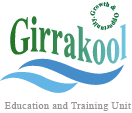26
SeptemberErotic Thailand Rehab Uses
Introduction:
Drug addiction is a complex and really serious problem that affects individuals, families, and societies globally. Its a chronic, relapsing mind disorder characterized by compulsive medication seeking and make use of despite harmful effects. This report aims to provide a brief history of medicine addiction, its causes, consequences, and prospective solutions.
Reasons for Drug Addiction:
There are many facets that play a role in medication addiction. The initiation and intensity of medicine use could be influenced by hereditary, environmental, and mental elements. A lot of people could have an increased vulnerability to be addicted due to hereditary predispositions. Ecological factors, eg peer pressure or experience of drug accessibility, can also play a substantial role. Additionally, psychological state conditions, childhood injury, and anxiety increases the chances of developing an addiction.
Consequences of Drug Addiction:
Medicine addiction has damaging consequences not just when it comes to individuals enduring it also for their own families and communities. It leads to actual and mental damage, including organ harm, reduced cognitive function, and increased risk of mental health conditions. Long-term drug use can severely effect an individual's personal relationships, job opportunities, and overall quality of life. Furthermore, drug addiction puts a significant burden on health systems and contributes to criminal tasks and social uncertainty.
Global Impact:
Medicine addiction is a global crisis affecting countries throughout the world. According to the United Nations Office on medication and Crime (UNODC), about 269 million men and women global used drugs at least one time in 2018. More over, around 35 million individuals suffer with medication use conditions, with opioid addiction being a substantial issue. The commercial costs of medicine addiction tend to be staggering, including health expenditures, lost productivity, and unlawful justice expenditures.
Prevention and Treatment:
Avoidance techniques are very important to tackling drug addiction. Knowledge and awareness programs that focus on the dangers of medicine usage will deter people, specially teenagers, from tinkering with medicines. In addition, policies that restrict drug accessibility and control prescription methods can play an important role in stopping drug use.
Regarding therapy, an extensive approach that includes medical, mental, and rehab Thailand personal interventions is essential. Detoxification, guidance, and behavioral treatments are commonly made use of treatment options. Medication-assisted therapy (pad) can be efficient, particularly for opioid addiction. But use of these treatments stays limited in several areas, which makes it required to deal with barriers to treatment ease of access and affordability.
Conclusion:
Medicine addiction is a complex societal problem that poses significant difficulties around the globe. Its causes are multifaceted, including hereditary, ecological, and psychological factors. The consequences of addiction tend to be damaging to individuals, households, and communities, affecting actual and psychological state, relationships, and socio-economic stability. Protection efforts, along with extensive therapy techniques, are essential for dealing with this crisis effortlessly. To combat drug addiction, a collaborative work between governments, health care providers, communities, and individuals is required to boost awareness, supply help, and improve access to therapy resources. Just through concerted attempts can develop to alleviate the duty of drug addiction and pave the way in which for a healthier and brighter future.

